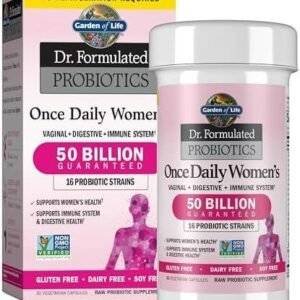In an age where wellness trends come and go like the changing seasons, one truth remains constant: the health of our gut is foundational to our overall well-being. As the epicenter of digestion, immunity, and even mood regulation, our gastrointestinal system deserves not just attention, but a dedicated regimen of care. Enter probiotics and prebiotics—the dynamic duo of gut health. These crucial components hold the key to unlocking a balanced microbiome, a flourishing community of microbes that plays a pivotal role in our daily vitality. In this article, we will explore the symbiotic relationship between probiotics and prebiotics, dissecting how they work in tandem to enhance digestive health, bolster immunity, and elevate our quality of life. Join us as we embark on a journey to unravel the science behind these gut guardians and discover practical ways to incorporate them into your diet, setting the stage for a harmonious balance within.
Table of Contents
- The Science of Gut Health: Understanding Probiotics and Prebiotics
- Nourishing Your Microbiome: Foods Rich in Probiotics and Prebiotics
- Crafting a Balanced Diet: Practical Tips for Incorporating Gut-Friendly Foods
- Choosing the Right Supplements: Essential Considerations for Probiotic and Prebiotic Use
- Insights and Conclusions
The Science of Gut Health: Understanding Probiotics and Prebiotics
The human gut is a complex ecosystem that plays a crucial role in our overall health. Central to this ecosystem are probiotics and prebiotics. Probiotics are live microorganisms that confer health benefits when consumed in adequate amounts. These beneficial bacteria help balance the gut microbiome, which can be disrupted by factors such as poor diet, stress, and antibiotic use. Including foods like yogurt, kefir, and sauerkraut in your diet can introduce these helpful companions into your gut, fostering improved digestion and enhancing immune function.
On the other hand, prebiotics serve as the food source for probiotics. These non-digestible fibers promote the growth and activity of beneficial bacteria. Foods rich in prebiotics, such as garlic, onions, bananas, and asparagus, can help nourish your gut flora and support a healthy digestive environment. Incorporating both probiotics and prebiotics into your daily diet is essential for maintaining a balanced gut microbiome, leading to better nutrient absorption and potentially reducing the risk of various health issues.
Nourishing Your Microbiome: Foods Rich in Probiotics and Prebiotics
The foundation of a healthy gut largely depends on the foods we consume. Probiotics, often referred to as “good bacteria,” can be found in a variety of fermented foods that not only enhance gut health but also support overall wellness. Incorporating these foods into your diet can help introduce beneficial microbes that assist in digestion and boost your immune system. Some excellent sources of probiotics include:
- Yogurt: Look for varieties with live and active cultures.
- Kefir: A fermented milk drink packed with diverse strains of bacteria.
- Sauerkraut: Fermented cabbage that’s rich in vitamins and enzymes.
- Kombucha: A tangy tea brimming with probiotics.
- Miso: A fermented soybean paste often used in soups.
While probiotics help to replenish our gut bacteria, prebiotics serve as their food source, nurturing the flora already present in our digestive systems. Prebiotic-rich foods contain fibers that promote the growth of beneficial bacteria and enhance gut health. To effectively support your microbiome, consider adding these items to your meals:
- Garlic: Contains inulin, a powerful prebiotic fiber.
- Onions: Rich in antioxidants and prebiotic compounds.
- Bananas: A great source of resistant starch that benefits gut health.
- Asparagus: Packed with vitamins and inulin for a healthy gut.
- Legumes: Beans and lentils are excellent sources of prebiotic fibers.
Crafting a Balanced Diet: Practical Tips for Incorporating Gut-Friendly Foods
Maintaining a healthy gut is all about making informed food choices. Start by incorporating a variety of probiotic-rich foods into your daily meals. These foods help to introduce beneficial bacteria into your digestive system, enhancing overall gut health. Focus on options such as:
- Yogurt: Look for varieties that contain live and active cultures.
- Kefir: A fermented milk drink packed with probiotics.
- Kimchi: A spicy fermented vegetable dish that also offers a burst of flavor.
- Sauerkraut: Fermented cabbage that can add crunch to dishes.
- Miso: A fermented soybean paste perfect for soups and marinades.
In addition to probiotics, prebiotics are essential for feeding these good bacteria and promoting a balanced gut flora. Include plenty of prebiotic foods in your diet to ensure that your gut health remains robust. Some excellent sources of prebiotics are:
- Bananas: Great for a quick snack and highly digestible.
- Garlic: A versatile ingredient that can be added to various dishes.
- Onions: Rich in fiber and antioxidants, perfect for soups and salads.
- Asparagus: A delicious vegetable that’s perfect for grilling or roasting.
- Oats: Start your day with a hearty oat bowl for added health benefits.
Choosing the Right Supplements: Essential Considerations for Probiotic and Prebiotic Use
When selecting supplements for gut health, it’s essential to consider several factors that contribute to their effectiveness. Start by choosing high-quality products from reputable brands that undergo third-party testing. Look for probiotic strains that have been clinically proven to benefit your specific health concerns, such as Lactobacillus for diarrhea or Bifidobacterium for constipation. Additionally, consider the CFU count (colony-forming units) to ensure you are receiving a potent dose, with a range of 10 billion to 100 billion CFUs typically recommended for most individuals. Lastly, note the expiration date, as the potency of probiotics can diminish over time.
Prebiotics, on the other hand, serve as food for probiotics and play a crucial role in enhancing their effectiveness. When choosing prebiotic supplements, ensure they contain soluble fibers like inulin, chicory root, or resistant starch, known to support beneficial gut bacteria. It’s also important to pay attention to suggested serving sizes: starting with a small amount can help your digestive system adjust, minimizing potential discomfort. To maximize benefits, consider integrating a variety of prebiotic sources from whole foods, such as garlic, onions, and bananas, which can further bolster your gut health naturally.
Insights and Conclusions
the delicate dance of gut health is a symphony finely tuned by the harmonious interplay of probiotics and prebiotics. As we venture further into the realm of nutrition and wellness, understanding and embracing these powerful allies can lead us towards a vibrant life, brimming with energy and resilience. By incorporating probiotic-rich foods and prebiotic fibers into our daily routines, we don’t just nourish our bodies but also cultivate a thriving microbiome that supports our overall health.
In this ever-evolving journey towards balance, let us become advocates for our own well-being. Whether through a luscious bowl of fermented yogurt, a crisp salad adorned with prebiotic-rich vegetables, or simply by being mindful of our food choices, we hold the power to foster an environment where good bacteria can flourish.
So, take a moment to reflect on your dietary habits and consider the impact that these tiny microorganisms can have on your life. It’s time to embrace the power of probiotics and prebiotics, championing a healthier gut and, by extension, a healthier you. After all, in the grand narrative of life, your gut isn’t just a silent participant—it’s a vibrant storyteller waiting to share its secrets of health and vitality.





